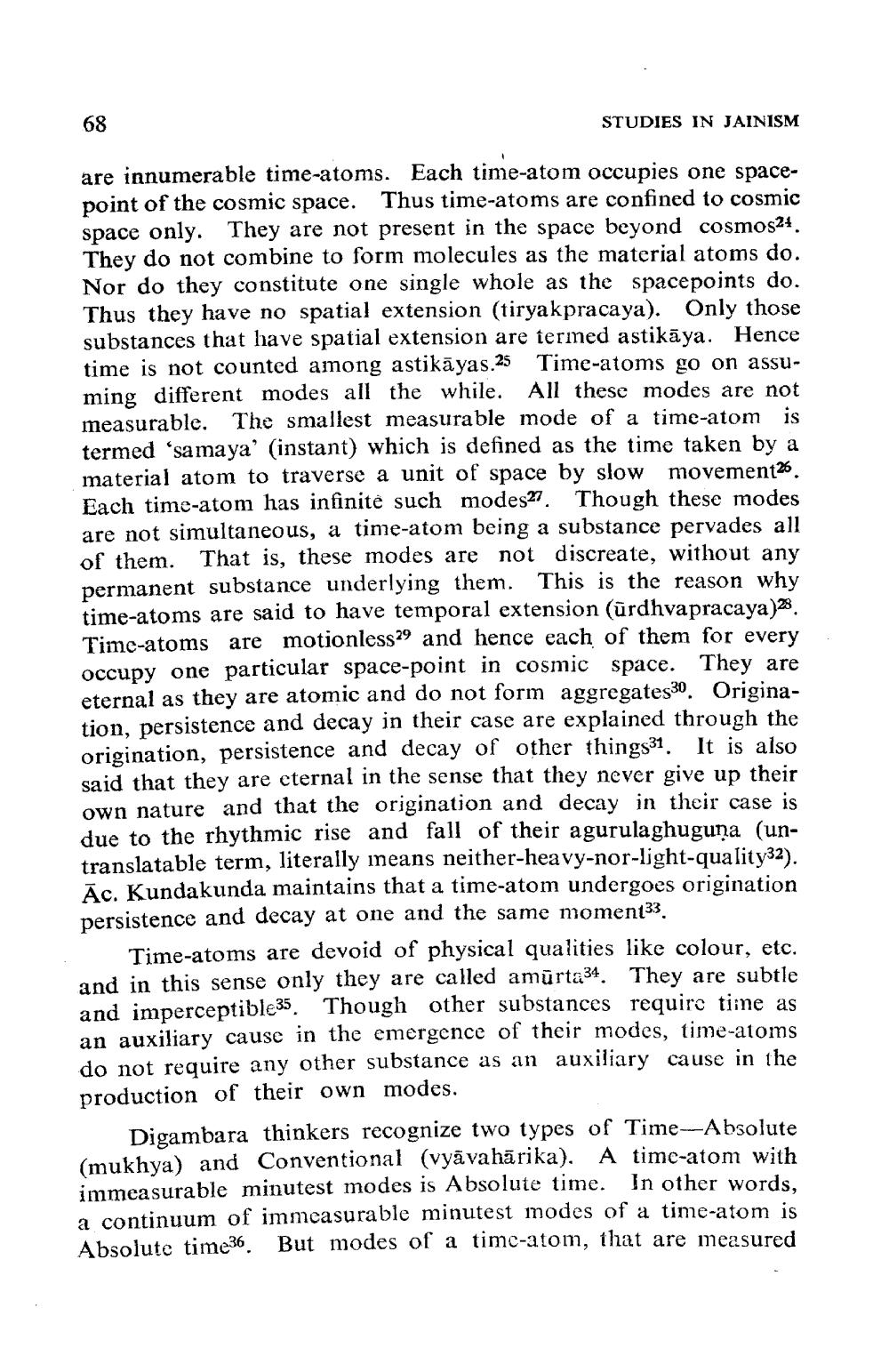________________
68
STUDIES IN JAINISM
are innumerable time-atoms. Each time-atom occupies one spacepoint of the cosmic space. Thus time-atoms are confined to cosmic space only. They are not present in the space beyond cosmos24. They do not combine to form molecules as the material atoms do. Nor do they constitute one single whole as the spacepoints do. Thus they have no spatial extension (tiryakpracaya). Only those substances that have spatial extension are termed astikāya. Hence time is not counted among astikāyas.25 Time-atoms go on assuming different modes all the while. All these modes are not measurable. The smallest measurable mode of a time-atom is termed 'sa maya' (instant) which is defined as the time taken by a material atom to traverse a unit of space by slow movement. Each time-atom has infinitè such modes27. Though these modes are not simultaneous, a time-atom being a substance pervades all of them. That is, these modes are not discreate, without any permanent substance underlying them. This is the reason why time-atoms are said to have temporal extension (ürdhvapracaya)2 Time-atoms are motionless29 and hence each of them for every occupy one particular space-point in cosmic space. They are eternal as they are atomic and do not form aggregates30. Origination, persistence and decay in their case are explained through the origination, persistence and decay of other things31. It is also said that they are eternal in the sense that they never give up their own nature and that the origination and decay in their case is due to the rhythmic rise and fall of their agurulaghuguna (untranslatable term, literally means neither-heavy-nor-light-quality32). Ā. Kundakunda maintains that a time-atom undergoes origination persistence and decay at one and the same moment33
Time-atoms are devoid of physical qualities like colour, etc. and in this sense only they are called amūrta34. They are subtle and imperceptible35. Though other substances require time as an auxiliary cause in the emergence of their modes, time-atoms do not require any other substance as an auxiliary cause in the production of their own modes.
Digambara thinkers recognize two types of Time-Absolute (mukhva) and Conventional (vyāva härika). A time-atom with immeasurable minutest modes is Absolute time. In other words. a continuum of immeasurable minutest inodes of a time-atom is Absolute time36 But modes of a timc-atom, that are measured




